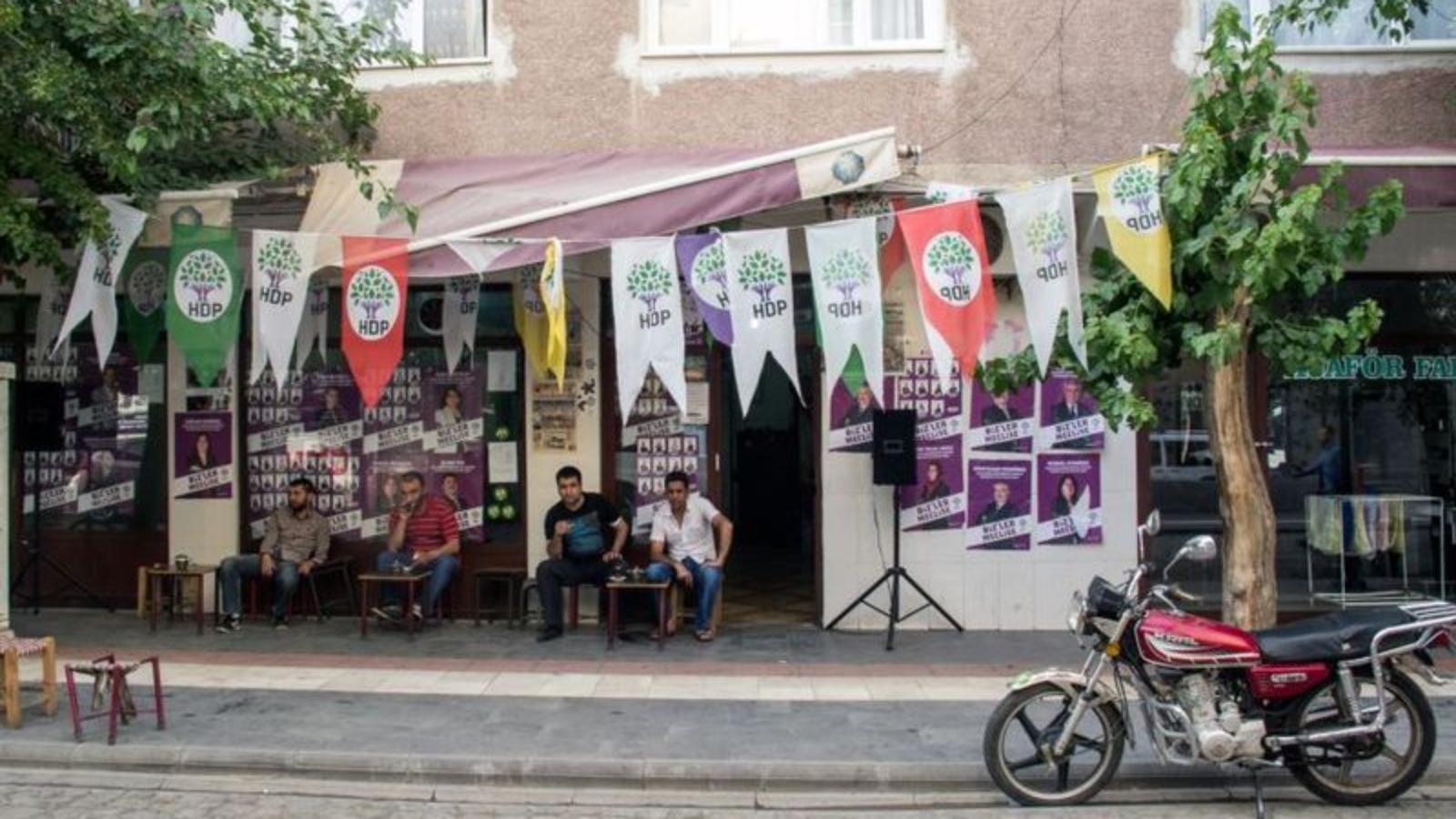By Laurel Jarombek
The relationship between Turkey’s government and the Kurdish population has been fraught with violence, repression, and mistrust. As the political representative of over 70 percent of Kurds in Turkey, the Peoples’ Democratic Party (HDP) juggles dual objectives—presenting a progressive alternative to mainstream political parties and acting as the de facto representative of Kurdish interests on the national stage. In Turkey’s turbulent political climate, the HDP may either find a way to advance its national stature, or allow a hostile central government and violent conflict in the country’s southeastern region to threaten the support of its base, if not the very survival of its party.
The HDP was founded in 2012, the latest in a series of political parties representing Turkey’s Kurdish population. The party advocates minority rights and a decentralized political system. Its democratic socialist platform emphasizes gender equality, LGBT rights, and environmentalism. The HDP won 13.1 percent of the vote in the June general elections, surpassing the 10 percent threshold needed to win seats in the Grand National Assembly. This was the first time a pro-Kurdish rights party has overcome the threshold since the implementation of the constitution in 1980.
Despite this progress, the intersection of two recent developments may pose a threat to the HDP’s continued success. The first is the breach of the March 2013 ceasefire agreement between the Turkish government and the Kurdistan Workers’ Party (PKK), a militant Kurdish separatist movement that carried out a 30-year insurgency in southeastern Turkey. Spurred by instability across Turkey’s southern border in Iraq and Syria, the PKK has carried out attacks in Turkey over the past few months. The Turkish military has responded with airstrikes against PKK targets in northern Iraq.
The second is the failure of Prime Minister Ahmet Davutoğlu of the Justice and Development Party (AKP) to form a coalition government with the Republican People’s Party or Nationalist Movement Party—Turkey’s second and third most popular parties, respectively. This impasse, which will result in new elections on Nov. 1, came about due to the HDP overcoming the electoral threshold, ending the AKP’s 13-year majority. The government’s airstrikes against PKK targets are widely interpreted as a political maneuver to discredit the HDP, which has historical connections with the PKK, and to draw nationalist voters to the AKP in November.
The HDP’s percentage of the popular vote in the June 2015 elections
The HDP is directly addressing the violence in its campaign for the upcoming elections. According to Mehmet Yuksel, Representative of HDP in the U.S., “our campaign will be […] that we will not allow AKP to bring civil war to Turkey.” The party’s concern that the AKP is actively preventing a resolution to the conflict stems from the government’s refusal to allow HDP representatives to meet with Abdullah Öcalan, the PKK’s imprisoned leader. Although the HDP had previously acted as an intermediary in peace talks between Öcalan and the Turkish government, no one in the party has been granted access to him since April.
With no hope of cooperation with the AKP to address the violence, Yuksel says, the HDP is “trying to do whatever we can do within the legal space we have.” The HDP submitted a petition to the U.N. Security Council accusing Turkish leaders of war crimes and crimes against humanity in attacks against PKK targets that resulted in dozens of civilian deaths. The party also publicized a press release from the Women’s Freedom Assembly calling on the Turkish government to end the siege of Silopi, a town near Turkey’s southern border.
Instead of losing support due to PKK activity, the HDP has been rising in popularity since June. The party is polling at 14.7 percent, according to the most recent data from MetroPoll. As it gains supporters, the HDP must continue to balance the demands of its Kurdish constituency and the expectations of voters attracted to its liberal platform. Although the party seeks to address the consequences of decades of marginalization of the Kurdish population, according to Yuksel, the HDP advocates, “bringing rights to everyone, not just [to] the Kurds.” Whether Turkish voters interpret the party’s platform in this way is still uncertain.
Turkish society is fairly conservative, and elements of Kurdish society are even more so. The HDP may be the political champion of the Kurds, but the party’s left-wing policies do not necessarily represent mainstream thought. The party’s minority rights agenda appears to be enough to secure its popularity in among Kurdish voters, but the HDP will need to take care not to lose its more conservative constituents.
The HDP has an opportunity to either make large gains in the Turkish electorate and national political discourse, or to falter as its predecessors have. With the AKP’s domination of the Grand National Assembly seemingly at an end, political power is up for grabs. Many voters are dissatisfied with mainstream politics, and minority rights issues are gaining popularity. The violence both across Turkey’s southern border and within the country itself is a destabilizing force, heightening the stakes of the current state of political limbo. If the HDP is able to take advantage of the uncertainty, though, the party’s goal of raising its share of the vote to as much as 20 percent in November may yet prove possible—and more importantly for the country, so might the party’s vision of a more democratic Turkey.
*****
*****
Laurel Jarombek is an editorial assistant at World Policy Journal.
[Photos courtesy of Wikimedia Commons]

